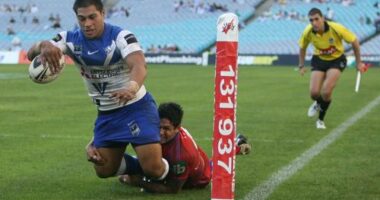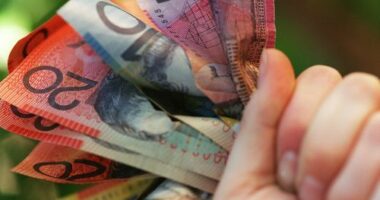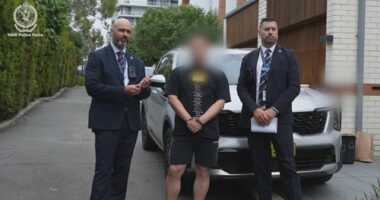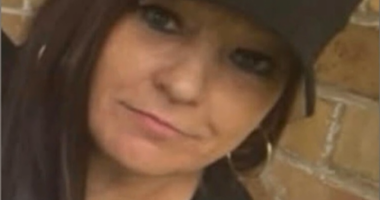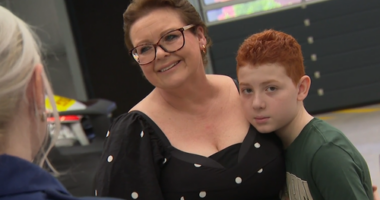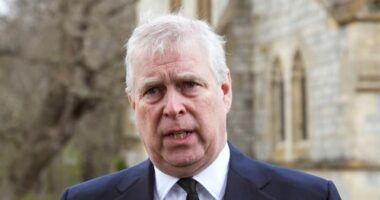Share this @internewscast.com
“It was the most painful thing of my life. I can’t imagine ever going through that again,” she says.

Young Chinese Australian Lucy Xu (pictured left as a child) says going no contact with her mother after coming out was the most painful period of her life. Source: Supplied / Lucy Xu
The 24-year-old publishing and editing postgraduate student is one of many young Chinese Australians who struggle to balance being their authentic selves with being ‘good’ children to their first-generation Chinese Australian parents.
“So it feels like when you lose something, it’s so much more impactful because you already didn’t have as much as someone else who was white growing up in Australia.”

Lucy Xu (pictured as a child) wants to embrace her authentic self with the support of her Chinese-Australian family. Source: Supplied / Lucy Xu
Family therapy and a letter
“So I just googled ‘Asian therapists who are in LGBTQ groups in Melbourne’ and it came out with the contact of a Malaysian therapist who’s also a gay man,” she says.

To reconcile with her mother after coming out as a bisexual, Lucy Xu invited her mother to go through family therapy together. Source: Supplied / Lucy Xu
Xu says the therapist — who speaks both Mandarin and English — has been key to helping her express feelings about her sexuality and communicate with her mother.
“I just remember afterwards she had a lot more questions for me about my sexuality,” Xu says.
So she wanted to understand more and know more about this part of me, which I was really grateful for
“She was much more open talking about the topic with me, even if she didn’t fully accept it.”

Growing up in a bilingual household, Lucy Xu (second from right) says it was challenging to figure out the exact words to use when coming out to her mother. Source: Supplied / Lucy Xu
‘This is who I am’
With support from his elder sibling, Wu’s parents accepted his identity. But even before their son came out, Wu’s parents already noticed stereotypes perpetuated against LGBTIQ+ people within certain parts of the Chinese-speaking expat community.

Hong Kong Australian filmmaker Victor Wu (right) says he wrote a letter to his parents when coming out as gay. Source: Supplied / Victor Wu
He recalls that when his parents first arrived in Australia in 1994, they were introduced to an evangelical church that a longtime friend from Hong Kong also attended.
These conflicted views aren’t uncommon within the Chinese community in Australia, Wu says, while noting progress on marriage equality and LGBTIQ+ rights more generally has made many Chinese Australians more accepting toward queer people.
“But now gay marriage is legal, they won’t think it’s immoral, but rather, they are scared of how they would be viewed if other people know their kids are gay,” Wu says, adding his parents once expressed concern about how coming out could affect his career.
Increasing everyday visibility within community
Wu believes the solution to counter lingering homophobia is to increase the everyday visibility of LGBTIQ+ people from the Chinese diaspora.
[It’s about] seeing people in our own communities, not seeing something in the media, but seeing some people in our schools, our workmates, weekend Chinese schools … that’s going to change their minds.
“I think part of the problem is because the narratives in the media and storytelling are still so much around pain and tragedy and loss, and it’s because we don’t have these positive stories that queerness is equated to sadness, death, tragedy and pain,” he says.

Victor Wu says his film, To Freely Flourish, aims to counter the stigma some LGBTIQ+ Chinese Australians face. Source: Supplied / Victor Wu
According to the 2021 Census, around two in 10 LGBTIQ+ Australians were born overseas, with 4.9 per cent of them speaking a language other than English at home.
Having experienced the struggle of coming out in a cross-cultural setting firsthand, both Wu and Xu say getting involved with an LGBTIQ+ peer collective with shared cultural backgrounds has been helpful for them in navigating the challenges.

After reading his letter, Victor Wu’s parents decided to embrace their son’s sexuality and gender identity. Source: Supplied / Victor Wu
“I think there’s already people doing amazing things and leading the community, creating community … but we’re not going to really learn about them as household names till much later,” Wu says.
How to prepare for ‘the talk’
“It feels like a social pressure to put on you that you have to come out, and it has to be a grounded thing,” he says.
These things take time, and it’s not just for you but also for your parents — some people can prepare for months or years.
For those considering coming out to their parents, Qian suggests joining a culturally specific LGBTIQ+ peer support group to navigate the balance between pursuing personal authenticity and maintaining cultural roots.
— With additional reporting by Bertin Huynh and Dennis Fang

